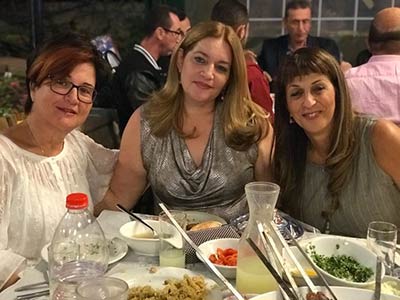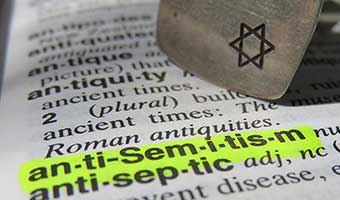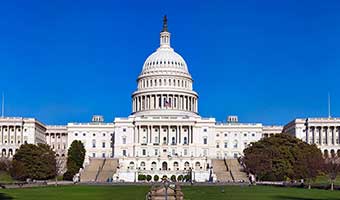
After completing a full day of work while fasting for the Ramadan holiday, the Hadassah Medical Organization’s Muslim nurses and physicians were joined by their Jewish and Christians colleagues for a traditional “iftar” dinner, sponsored by Hadassah, at a nearby restaurant.
“When Ahmad approached me about breaking his fast after the hospital kitchen closed, I saw more than his hunger for food,” said Ofrah Yurun, the administrator for Hadassah’s physicians’ association and one of the organizers of the event. “I saw his hunger for companionship and his loneliness.” As with many of Hadassah’s Muslim employees, Ahmad’s family lives in the north of Israel. During Ramadan, those fasting traditionally join their extended families for a festive dinner at night to break the fast. “We work together in the most intense life-and-death situation for hours on end. It’s only natural that the Hadassah family host an iftar dinner for our coworkers,” said Ms. Yurun.
The iftar dinner included more than 150 participants, about 80 of whom were Muslims. An authentic cookie, traditional at an iftar dinner, was given as a gift to those who had fasted, emblazoned with the word “Jerusalem.”
“Jerusalem, and Hadassah in Jerusalem, transcend our differences,” noted Eyad Abusara, a senior nurse at Hadassah Hospital Mount Scopus, who played a central role in planning the dinner. “We all are part of Jerusalem and all are part of Hadassah.”
Dr. Rely Alon, Director of the Division of Nursing at Hadassah, represented the hospital’s senior management. Opening the evening with the traditional greeting of, “Ramadan Kareem,” Dr. Alon said:
“The coexistence and mutual respect that shapes our work must shine out from Hadassah to shed light on the rest of the country. This cooperation is felt daily by our patients. I am proud to be here and proud to be part of the Hadassah family. This is my first iftar dinner, but it will not be my last. The Hadassah family will continue to provide a supportive workplace for all our employees, and I look forward to joining our Muslim colleagues for many iftar dinners in the future! A special thanks to the doctors’ and nurses’ associations, and to Eyad Abusara, Ofrah Yurun, and Nitza Shemesh for organizing this event.”
Mr.Abusara, who was responsible for maintaining the dinner’s ceremonial and traditional aspects, explained the customs of Ramadan and the iftar evening meal for the benefit of his Jewish and Christian colleagues. He had brought his family to the event, explaining that the iftar “is traditionally celebrated within the warmth of the family. It is appropriate for me to bring my immediate family to celebrate iftar with my larger Hadassah family. Hadassah brings people together from all sectors of society, and always puts the individual person at the center--whether the patient or the employee. I hope the iftar tradition continues at Hadassah every year.”
“Outside of Hadassah,” noted Nurses’ Association Administrator Nitzah Shemesh,” this mix of people would never sit down together.” A resident of the Israeli settlements and one of the event’s organizers, she added: “This event embodies the real coexistence and mutual respect that exists between all doctors and nurses at Hadassah.”








